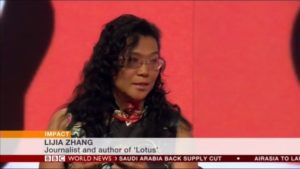 |
| Zhang Lijia |
Zhang Lijia:
Why don’t Chinese want more babies? The high cost of raising children is often cited as the main reason. Expensive housing, education and health care make raising children a costly business.
But the reality is far more complex. One important reason, in my view, is that women have changed. They don’t care to be only the reproductive tool of the family or the state.
A large percentage of today’s women of childbearing age are from the one-child generation, who have grown up in an affluent society and enjoyed the lavish attention of their parents and grandparents. They tend to be assertive people who dare to pursue their own dreams. Many urban women are well educated and career-minded.
The story Jojo Zhang, a 36-year-old bank manager in Beijing, narrates is quite typical. Zhang was one of the women who responded to a post I put up on WeChat, looking for women to interview who have given motherhood a miss.
An only child, she had loving parents and a happy childhood. But she never had a burning desire to have children. About 10 years ago, some of her friends got married and started to have children.
Few found the experience rewarding. “It just takes too much time and energy,” they advised her. “Don’t bother having children.” She took it to heart.More in the South China Morning Post
Zhang Lijia is a London-based speaker at the China Speakers Bureau. Do you need her at your meeting or conference? Do get in touch or fill in our speakers' request form.
Are you looking for more speakers on cultural change at the China Speakers Bureau? Do check out this list.
Is the coronavirus disrupting your China meeting? Do check out if the China Speakers Bureau can help you.
At the China Speakers Bureau we have started to explore WeChat Work as a social platform, next to Twitter, Facebook and LinkedIn. Are you interesting in following us on this journey? Check out our instructions here.
